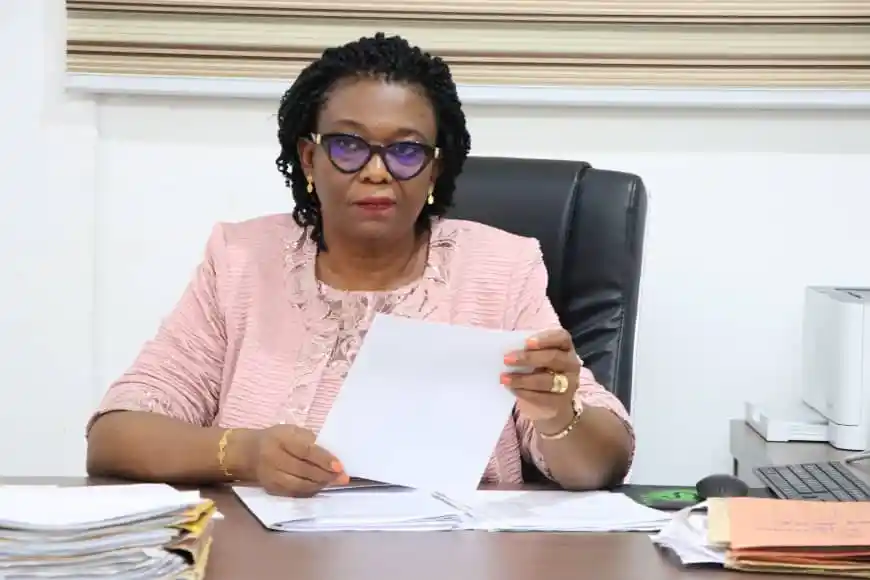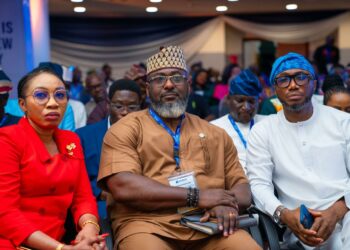The National Agency for Science and Engineering Infrastructure (NASENI) appears more optimistic in its quest to actualize its core mandate, which is to lead Nigeria to join the league of the industrialised world through massive efforts and investments in human capital and technological development.
The far-reaching impacts of NASENI’s research, technologies, investment and establishments of training institutes, skill centers and machine and equipment fabrication centers have raised the profile of the agency and increased people’s awareness of the activities of the agency.
The newly-appointed acting executive vice chairman (EVC) of NASENI, Mrs. Nonyem Onyechi, gave an indication that the stability of the agency to pursue the industrialisation agenda of the President Muhammadu Buhari Administration will remain her priority.
The acting EVC, who last week took over from former EVC, Prof Mohammed Sani Haruna, after the latter’s eventful ten years in the saddle, pledged her total commitment to enhance NASENI as one of the most visible legacies of President Buhari, who has demonstrated much benevolence to the agency by approving massive funding and investments to NASENI to manufacture and fabricate machines as well as the technical support needed to facilitate Nigeria’s industrialization.
Some of the most significant efforts the agency has made in recent times were its collaboration with some countries to boost NASENI’s technical capacities. NASENI opened channels of collaboration with three countries to revolutionise agriculture in Nigeria. The countries included Italy, the Hashmite Kingdom of Jordan and the Czech Republic in line with the federal government policy on food security.
The modality for the partnership with the three countries is expected to offer technical assistance to the six newly-established Agricultural Machinery and Equipment Development Institutes (AMEDI) in the country.
There was also the collaboration between the federal government and Czech Republic, which launched a Call for Public Proposals on Delta-2 Programme worth $16.2 million Co-funding Research and Development (R&D) project. This project is the latest in the quest to strengthen bilateral ties between the two countries in the area of technology transfer in line with the economic diversification priority of the government of President Muhammadu Buhari.
NASENI and Atmosfair Germany designed and manufactured the Save 80 Efficient Cooking Stove and the wonder pots being distributed to women nationwide. Atmosfair Germany is a non-governmental organization (NGO) on a mission to save the environment from further deforestation and desertification.
NASENI has also established a new Agricultural Machinery and Equipment Development Institute (AMEDI) across the six geo-political zones of the country in addition to six other Industrial Machinery and Equipment Development Institutes also located in various geo-political zones of the country as approved by President Buhari. It is instructive that AMEDI is not an ordinary institute but a specialised one to research, develop, manufacture, and to introduce mechanisation of farming.
The machines and equipment to be produced in the Institute are expected to be high-tech to make the people grow agricultural yields up to three times all year round. NASENI has also provided machines for the power sector including solar installation materials that have made significant impact in the renewable energy drive of the country especially now that the country is pursuing a policy of clean energy.
NASENI has made enormous efforts in retraining automobile artisans popularly called ‘mechanics’ nationwide with modern techniques to enhance their skills. This is part of the skill acquisition scheme of the agency for youth empowerment on autotronics and sensory system, which is ongoing nationwide.
So far over 3,700 youths in the six geo-political zones of the country have been trained on modern farming, agricultural processing, production and preservation in line with the implementation of President Muhammadu Buhari’s directive to the agency to introduce modern techniques for farming.
NASENI has over the years made significant strides in the fabrication of machine equipment for defence sector as well as Research and Development (R&D) for the defense industry in the country by manufacturing military grade equipment with superb efficiency in surveillance and aerial weapons of warfare to fight insecurity in the country.
However, despite these enormous efforts, funding constraints have bedeviled the agency, which has hindered its potential to industrialise the country. It is disturbing that so far the agency according to sources has only been able to access 8 per cent budgetary allocations. Also the current 0.5 per cent of the GDP earmarked for R&D even though it is an improvement from previous years, still needs to be scaled up.
Moving forward, the government must release the funds approved for NASENI by the national assembly. This is the way the agency can sustain the efforts to attain its industrialisation agenda.





